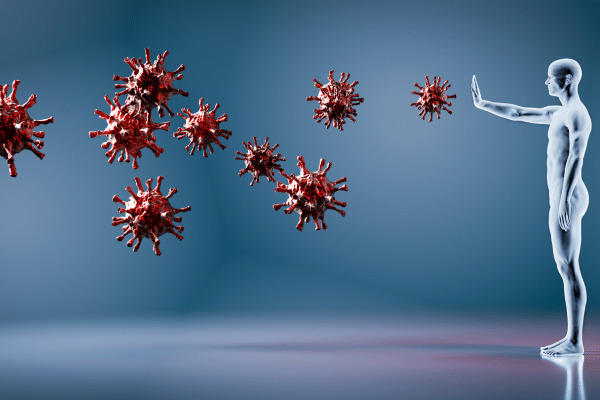Spicy food, often a staple in many cultures, holds a revered place in global cuisine. Its ability to add depth, heat, and complexity to dishes is unmatched. However, beyond its culinary appeal lies a question of health: Does spicy food offer more than just tantalizing flavors? This blog post delves into the scientific and nutritional aspects of spicy food, exploring its potential health benefits. From metabolism boosts to heart health, the effects of this fiery fare are examined, providing insights into whether those heat-packed meals are just delicious or also beneficial for health.
Contents
Increases Your Metabolism

Spicy foods have long been associated with a kickstart in metabolism, primarily due to the presence of capsaicin, a compound found in chili peppers. Capsaicin is known to induce thermogenesis, a process where the body burns calories to produce heat. This temporary metabolic boost can be particularly appealing to those seeking weight management solutions. However, the extent of this boost and its impact on long-term weight loss is a subject of ongoing research. While some studies suggest a modest increase in calorie burning, the overall effect may vary depending on individual factors such as dietary habits and tolerance to spice.
The fascination with spicy food as a metabolic accelerator also extends to its potential in aiding fat oxidation. Some researchers propose that capsaicin may not only increase energy expenditure but also encourage the body to utilize more fat as fuel. This process, coupled with a balanced diet, could contribute to weight management. However, it’s crucial to approach this with a realistic perspective. The metabolic effects of spicy foods are typically modest and should be considered as part of a comprehensive approach to health and fitness, rather than a standalone solution for weight loss.
Improves Heart Health

The impact of spicy foods on heart health has garnered significant attention in the health community. Numerous studies have pointed towards a possible link between regular consumption of spicy foods and a reduced risk of heart disease. This protective effect is often attributed to capsaicin’s ability to improve blood vessel function and lower blood pressure. Additionally, spices like chili peppers are rich in antioxidants, which play a crucial role in fighting off oxidative stress, a known contributor to heart disease.
Moreover, some components in spicy foods have been found to positively influence cholesterol levels. These foods can decrease the levels of bad LDL cholesterol while maintaining or even increasing good HDL cholesterol. This balance is vital for maintaining healthy blood flow and preventing artery blockage. Despite these promising findings, it’s important to note that consuming spicy foods is just one factor in heart health. A holistic approach, including regular exercise and a balanced diet, remains essential for maintaining a healthy heart.
Enhances Digestive Health

Contrary to popular belief that spicy food is detrimental to digestion, recent studies indicate quite the opposite. Capsaicin, the active component in chili peppers, has been shown to stimulate digestion by increasing digestive fluid production and delivering enzymes to the stomach, aiding in the breakdown of food. Additionally, it can fight off harmful bacteria in the gut, contributing to a healthier digestive system. This counterintuitive benefit highlights how the body can adapt to and even thrive on a variety of diets, including those high in spice.
The benefits of spicy food for digestive health extend beyond just processing nutrients efficiently. It’s believed that these foods can improve gut health by stimulating the growth of beneficial gut flora. A healthy gut microbiome is essential for overall wellness, playing a crucial role in everything from nutrient absorption to immune function. While it’s essential to consume spicy foods in moderation to avoid potential discomfort, including them as a part of a balanced diet can be a valuable addition to supporting digestive health.
Natural Pain Relief

Spicy foods, particularly those containing capsaicin, have been recognized for their natural pain-relieving properties. Capsaicin works by binding to pain receptors in the body, which initially causes a burning sensation but eventually leads to a decrease in pain signals sent to the brain. This mechanism has been harnessed in various topical pain relief creams, demonstrating the efficacy of capsaicin as a natural analgesic. The application of such treatments for conditions like arthritis and neuropathic pain has shown promising results, offering relief without the side effects associated with some pain medications.
Further research into capsaicin’s pain relief capabilities reveals its potential in reducing inflammation, a key contributor to pain in many conditions. By inhibiting certain neuropeptides that are involved in the inflammatory process, capsaicin can provide relief for those suffering from inflammatory pain conditions. It’s important to recognize, however, that while spicy foods can contribute to pain relief, they are not a cure-all solution. For chronic or severe pain, a comprehensive treatment plan developed in consultation with healthcare professionals is crucial.
Boosts Immunity

Spicy ingredients, especially chili peppers, are rich in vitamins, such as vitamin C, and antioxidants, which are essential for bolstering the immune system. These nutrients help combat free radicals in the body, reducing oxidative stress and supporting the body’s defense against infections and diseases. Regular consumption of spicy foods can contribute to an overall healthier immune system, making the body more resilient against common illnesses like colds and flu.
Beyond vitamins, the antimicrobial properties of many spices play a vital role in immunity. Spices like garlic, ginger, and turmeric, often used in spicy dishes, have been known for their infection-fighting capabilities. This makes spicy food not only a flavorful choice but also a strategic one for maintaining health, especially in seasons when immune systems are particularly vulnerable.
Enhances Joint Health

The anti-inflammatory properties of many spices used in spicy food have implications for joint health, particularly in reducing pain and stiffness associated with conditions like arthritis. Capsaicin, in particular, has been studied for its ability to inhibit substance P, a pain transmitter in the body, providing relief for joint discomfort. Regular consumption of spicy foods could, therefore, play a role in managing symptoms of joint-related conditions, offering a natural and dietary approach to pain relief.
Furthermore, the antioxidant properties of spices help in protecting joint tissues from damage caused by inflammation and oxidative stress. This preventative aspect of spicy foods can be especially beneficial for individuals with a predisposition to joint issues. However, it’s crucial to remember that dietary choices should complement medical treatments and advice, not replace them. A balanced approach, including both nutrition and appropriate medical care, is key for optimal joint health.
Potential Risks And Considerations

While the benefits of spicy food are numerous, it is essential to consider potential risks and adverse effects. Overconsumption of spicy foods can lead to gastrointestinal discomfort, including heartburn and indigestion. Individuals with sensitive stomachs or conditions like irritable bowel syndrome (IBS) might need to limit their intake of spicy foods to avoid exacerbating symptoms. Moderation is key, and it’s important to listen to the body’s signals when incorporating spicy foods into a diet.
Another consideration is the interaction of spicy foods with certain medications and health conditions. For instance, high amounts of capsaicin can affect blood clotting and may interact with blood-thinning medications. It’s advisable for individuals on such medications or those with specific health conditions to consult healthcare professionals before making significant dietary changes, including increasing the intake of spicy foods.
The Bottom Line
In summary, spicy foods offer a range of health benefits, from boosting metabolism and improving heart health to aiding in digestion and providing natural pain relief. The immune-boosting and joint health-enhancing properties further add to the appeal of spicy dishes. However, it’s crucial to balance these benefits with potential risks, especially for those with specific health conditions or dietary sensitivities. Ultimately, including spicy food as part of a balanced, varied diet can contribute to overall health and well-being, but as with all things, moderation is key.


